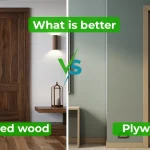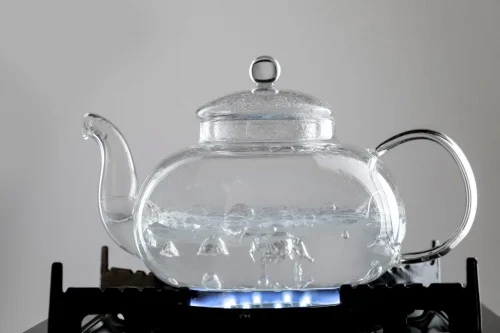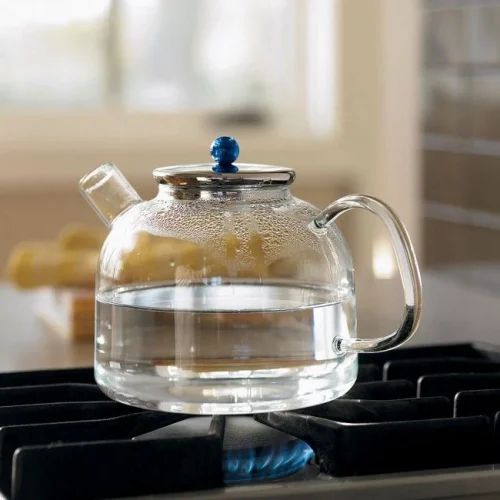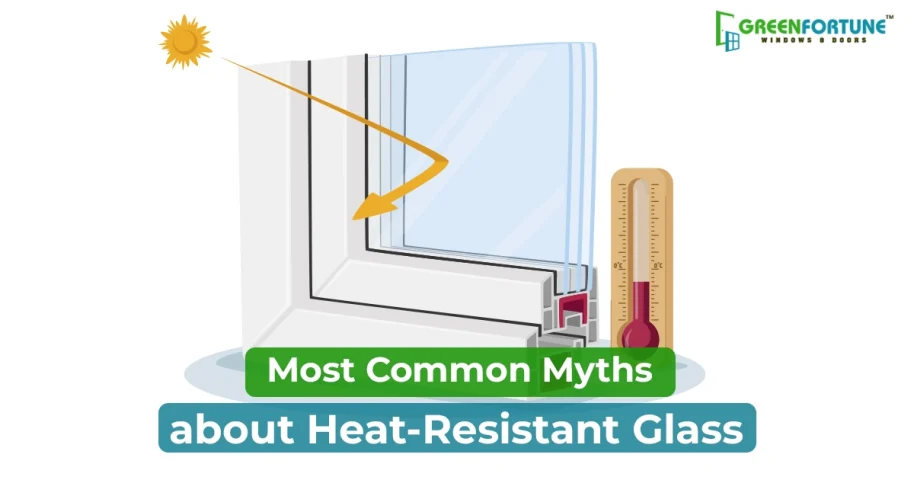
Plywood vs Engineered Wood: Which is the Better Choice for Your Home?
April 3, 2025
12 Reasons to Choose a Home in Gated Communities
April 3, 2025From our windows to our dinnerware, glass is everywhere. But when we talk about heat-proof glass, many people can have misconceptions. Some believe that heat-resistant glass is shatterproof, whereas others believe that all glass can survive high temperatures. But what’s fact and what’s fiction? In this guide, let’s debunk the 8 most common myths about heat-proof glass and learn the facts behind them.
Table of contents
- Heat Proof Glass: Myths & Facts
- Myth #1: All Glass Are Heat Resistant
- Myth #2: Heat Resistant Glass Cannot Break
- Myth #3: Tempered Glass Is The Same As Heat-Resistant Glass
- Myth #4: All Heat-Proof Glass Can Survive Open Flames
- Myth #5: Any Glass Is Safe For Oven
- Myth #6: Microwave Safe Glass Is Heat-Resistant
- Myth #7: Heat-Proof Glass Comes In Clear Form Only
- Myth #8: Heat-Resistant Glass Offers Noise Insulation
- Types of Heat-Resistant Glasses:
- Final Words:
- Choose GreenFortune uPVC Windows And Doors For All Your Home Needs:
- Frequently Asked Questions (FAQs):
Heat Proof Glass: Myths & Facts
Heat-resistant glasses or heat-proof glasses are specially designed glasses that can survive high heat without shattering or cracking. Unlike your regular glass, heat proof glasses are made with borosilicate or tempered glass, allowing it to survive high temperatures. You can find these glasses on oven doors, fireplaces, and industrial settings.
However, despite its durability and heat-resistant properties, some misconceptions remain. So, let’s learn the common myths and the truth behind them:

Myth #1: All Glass Are Heat Resistant
Fact: While it’s a common myth that all glass is heatproof, it’s not always fact. Regular glass, like the ones on your windows or drinking glass, can crack and break when exposed to high heat. On the other hand, heat proof glass is made with specialised materials that are designed to withstand high temperatures.
Myth #2: Heat Resistant Glass Cannot Break
Fact: That’s a myth! Heat proof glass, while has the ability to handle high temperatures, is not unbreakable. If you drop it from a height or expose it to extreme thermal shock, then even heat-bearable glass can crack or shatter.
Myth #3: Tempered Glass Is The Same As Heat-Resistant Glass
Fact: The truth behind the myth is that while tempered glass is stronger than your regular glass, it’s not always heat proof. Tempered glass is created by heating and then quickly cooling the glass, making it more durable against impact. However, it’s still breakable when exposed to high heat. True heatproof glass, such as one made from borosilicate, is designed to handle high temperatures without cracking.
Myth #4: All Heat-Proof Glass Can Survive Open Flames
Fact: While it’s true that heat-bearable glass can withstand high temps, not all heat proof glass can survive open flames. For instance, a high-quality borosilicate glass can sustain high temperatures, but exposing it to open flames can cause fractures with time. It’s recommended that you check the manufacturer’s instructions before bringing a heat-proof glass near open flames.
Myth #5: Any Glass Is Safe For Oven
Fact: This is another misconception. If you put any regular glassware in an oven at a high temp, it can shatter. Only oven-safe glassware, such as one made from borosilicate, can be safe for an oven’s high temperature. You should always look for safety markings on any glassware before exposing it to high heat.
Myth #6: Microwave Safe Glass Is Heat-Resistant
Fact: Did you know that microwave-safe and heat-proof glass are not always the same thing? Yes, some glasses are labelled as microwave-safe because they don’t have metal coatings, but it doesn’t mean they can survive long-term exposure to heat. It’s always safe to follow the instructions provided to prevent any breaks or cracks.
Myth #7: Heat-Proof Glass Comes In Clear Form Only
Fact: Glass that’s heat-resistant can come in different finishes and tints. This allows for more aesthetic flexibility. You can find options such as frosted glass, tinted, or patterned glass to meet function and design. This makes heat-resistant glass a versatile choice that can have safety, functionality, and visual appeal.
Myth #8: Heat-Resistant Glass Offers Noise Insulation
Fact: While there are certain types of glass, like laminated glass, that can offer better noise insulation, they don’t always offer complete sound cancellation. The level of sound reduction can depend on various factors, such as the thickness of the glass and the specific layer materials that are used.
Related Read: What is safety glass, and how does it work? A Complete Guide
Types of Heat-Resistant Glasses:

Source: Pinterest
Heatproof glass is made with special materials and processes that can increase its durability against high heat. Here are the types of heat-resistant glasses you need to know:
- Borosilicate Glass: This type of glass is made with silica and boron, and has a low thermal expansion rate. This means that it can survive sudden temperature changes without cracking. Borosilicate glass is used in lab glassware and bakeware.
- Ceramic Glass: This type of glass is more heat-proof than borosilicate and can also survive high heat without shattering. Ceramic glass can be found in cookware because of its excellent heat resistance properties.
- Tempered Glass: This type of glass is made with a process of rapid heating and cooling, making it impact-resistant. While it can be good to handle some heat, it can still break or crack when exposed to sudden temp changes. Tempered glass can be used on oven doors, shower stalls, and car windows.
Also Read: 12 Types of Glass for Windows You Need to Know About
Final Words:
While heat-resistant or heat-proof glass is a wonderful addition to our daily lives, there are many misconceptions about it that people still believe. These glass types can withstand high temperatures, but they are not always unbreakable. So, the next time you’re shopping for heat-resistant glass, make sure you buy knowing the facts behind them.
Choose GreenFortune uPVC Windows And Doors For All Your Home Needs:
GreenFortune prides itself on providing you with high-end products that are not just durable like heat-proof glass, but also visually appealing, sustainable, and eco-friendly for your home. Our wide range of uPVC doors and windows are energy-efficient, stylish, and functional, transforming your living space into a comfortable and aesthetic space. Check out our range of products and home improvement solutions by clicking here.
Frequently Asked Questions (FAQs):
Q: What type of glass is heatproof?
In comparison to other types of glass, borosilicate glass is best in heat-proof glass. This glass is commonly used in lab equipment and other high-heat applications. Borosilicate glass is made with a mix of silica and boron, making it resistant to thermal shock as well.
Q: Is borosilicate glass good for the environment?
Yes, borosilicate glass can be eco-friendly as it’s made with natural materials. Moreover, borosilicate glass is harder and more durable than regular glass, so it can last longer and you don’t have to replace your glassware frequently.
Q: Is tempered glass is heat-resistant?
Yes, tempered glass can be heat-proof and can be resistant to thermal shock. This makes tempered glass an ideal choice for environments where temperature changes frequently. Plus, tempered glass can be customised to your needs as well.








